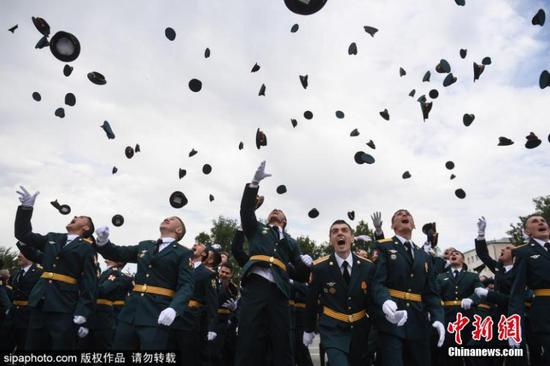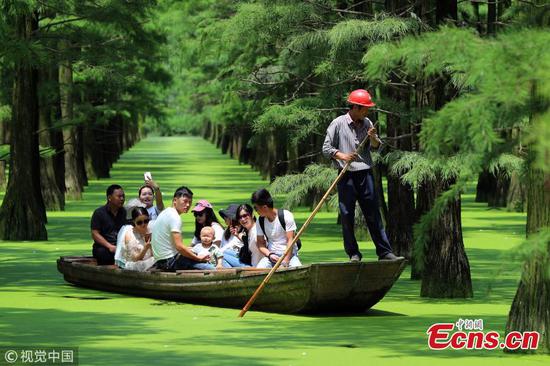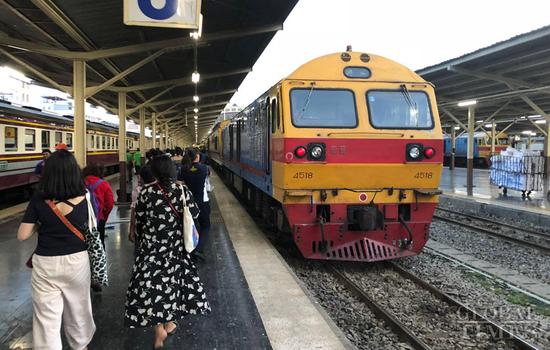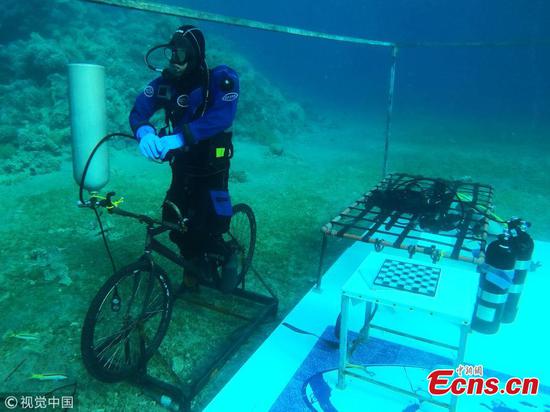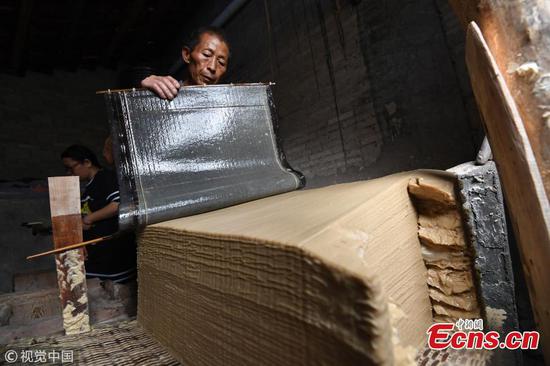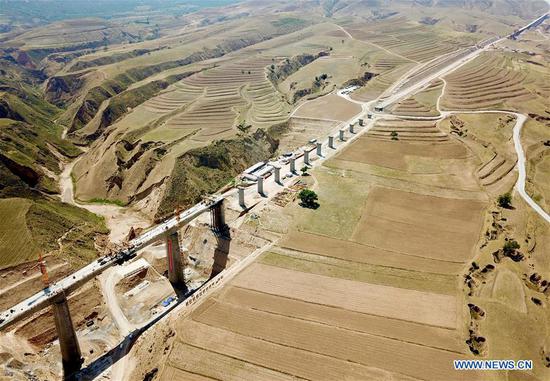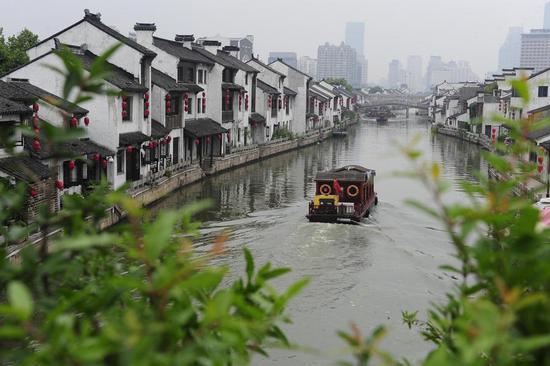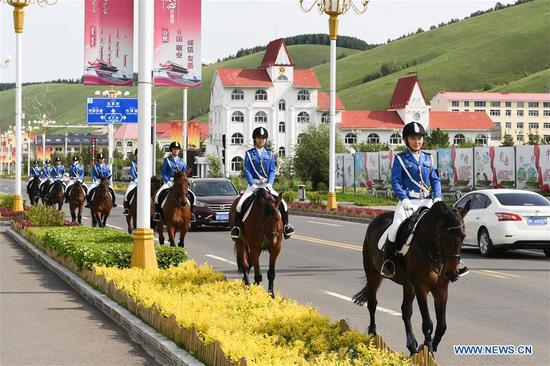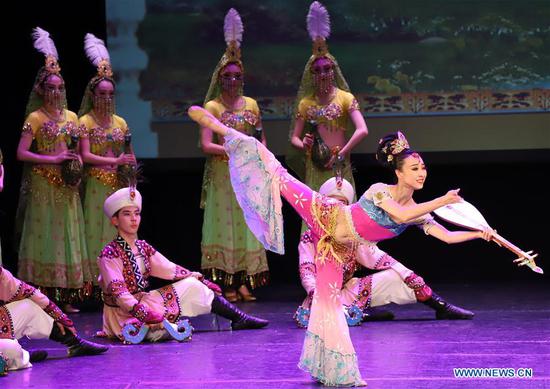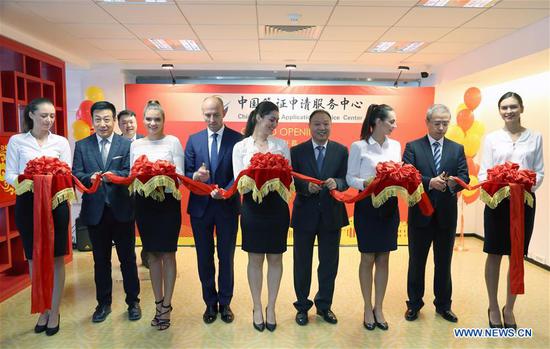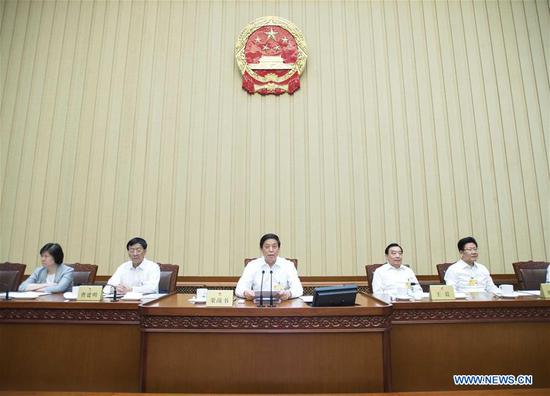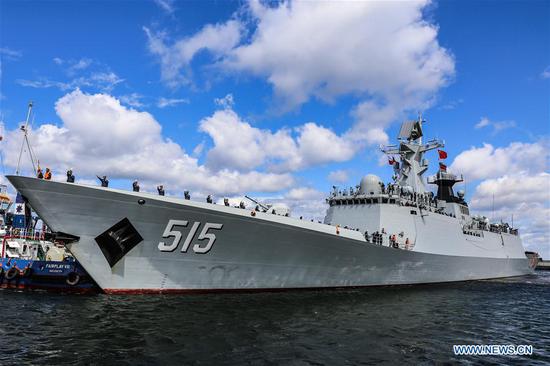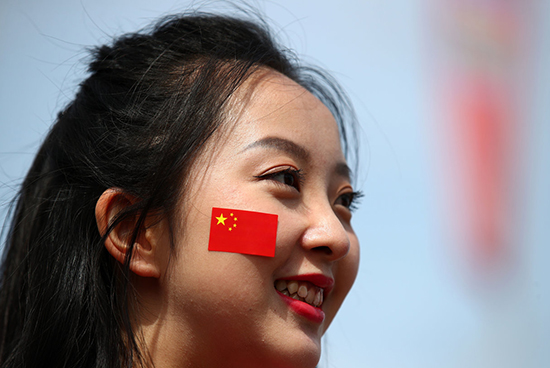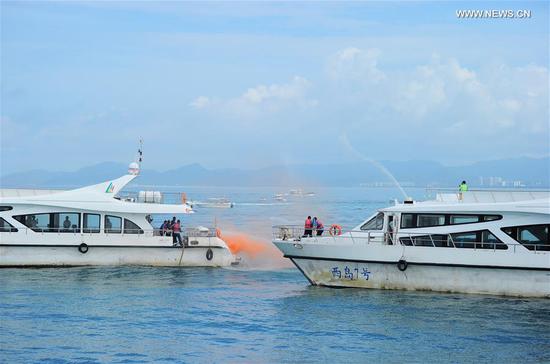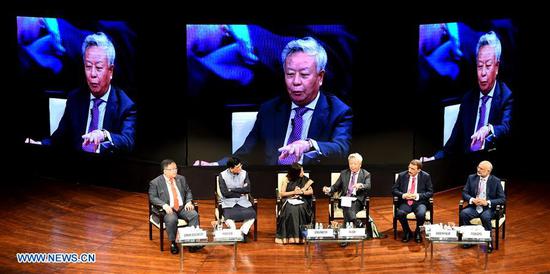
President of the Asian Infrastructure Investment Bank (AIIB) Jin Liqun (3rd R) speaks at the third annual meeting of AIIB in Mumbai, India, June 25, 2018. (Xinhua/Zhang Naijie)
The third annual meeting of Asian Infrastructure Investment Bank (AIIB) kicked off in India's financial hub Mumbai on Monday with the theme "Mobilizing Finance for Infrastructure: Innovation and Collaboration."
Over 3,000 delegates from over 80 members as well as varied multinational organizations are attending the two-day event, which will see brainstorming sessions on how to mobilize finance for huge infrastructure needs in developing countries in Asia and beyond.
Policy-makers, officials from AIIB members, and participants from partner organizations, private sector and civil society organizations will share their insights on addressing the huge infrastructure-deficit in a sustainable, environment and society-friendly manner.
At AIIB Governors' seminar during the event on Monday, AIIB President Jin Liqun stressed the need to increase the private-sector investment in financing the infrastructure in developing countries of Asia.
"We are trying to work with the private sector to do infrastructure projects and investments in other productive sectors so that we don't have to put pressure on the balance-sheet of the government," said Jin.
He called upon all the governments in Asia in particular to clear hurdles in the way of private-sector investment for building infrastructure.
He also hoped that the private sector will be more than willing to pour money into infrastructure projects if government clears practical hurdles in the way of investment.
He said that AIIB wants to work as a bridge between private sector and governments.
Jin also shared the best practices adopted by the Chinese government in clearing hurdles for building massive infrastructure across China. "We must be innovative and we must be responsive to the needs of the (local) people," he said.
He also termed the Beijing-based bank as a problem-solver in order to forge a win-win partnership. "I believe that we are not just financers, we are problem solver for the government, for the private sector," he said.
At a media-briefing during the event, AIIB Vice President Danny Alexander also enumerated priorities and lending norms of the AIIB. "Lean, clean and green is the way we work. We invest in sustainability and are guided by those priorities. Our bank is apolitical and all projects have to pass our test on sustainability and environment," he said.
He also said that AIIB would consider investing in projects outside Asia as long as they serve to benefit Asian regions too.
This year, AIIB also launched an inaugural Asian Infrastructure Forum during the Mumbai meeting, drawing investors from private companies around the globe. Speakers at the forum called upon multinational companies to follow public-private partnership model in order to build cross-country connectivity in Asia.
On the sidelines of the AIIB meeting, an "India Infrastructure Expo 2018" was also organized by the host country to highlight the tremendous scope of building infrastructure in India.
While inaugurating the expo on Sunday, India's Finance Minister Piyush Goyal welcomed AIIB guests from around the world. "We're extremely delighted at the progress that the Bank has made," he said.
The indian minister has also lauded AIIB for its achievements in a short time-span of three years.
"The Asian Infrastructure Investment bank has really matured in a short period of time, and is rapidly progressing to become one of the most important infrastructure financiers across the world," said the minister, who is also on the board of governors at AIIB.
Various private companies and international agencies are showcasing their latest solutions, advanced technologies and other offerings in the arena of infrastructure development at the India Infrastructure Expo.
Among others, International Fund for Agricultural Development (IFAD), a UN agency headquartered in Rome is also ready to join hands with AIIB in the area of rural-infrastructure in countries like India and China.
Alexander Boehm, IFAD's representative and technical specialist at the Global Engagement Knowledge and Strategic Division, told Xinhua at the sidelines of the meeting that China and India share the responsibility to lead new international institutions.
"Given their size, given their market size and enormous potential, it only makes sense to these countries to be more active internationally," he said, while highlighting the potential scope in building rural-infrastructure in India and China as well as other developing nations.
Indian Prime Minister Narendra Modi is scheduled to address the gathering on Tuesday.
During the annual AIIB meeting, 22 seminars focusing on building infrastructure in Asia and beyond, gender and infrastructure and finding ways to fund infrastructure are being organized.
According to the latest AIIB annual report, the bank has financed 23 projects worth 4.2 billion U.S. dollars, a significant increase from 2016.
It was estimated that Asia's infrastructure needs will be over 1.7 trillion U.S. dollars per year till 2030.
India has emerged as the biggest beneficiary of the multilateral bank with the country already garnering 1.2 billion U.S. dollars of funds. Another 1.9 billion U.S. dollars of fund to finance various projects in India has also been approved by the bank.
While 75 percent of the bank's capital comes from Asia, some members from non-Asian regions like Europe, North America, and East Africa, among others, have also joined the bank.












